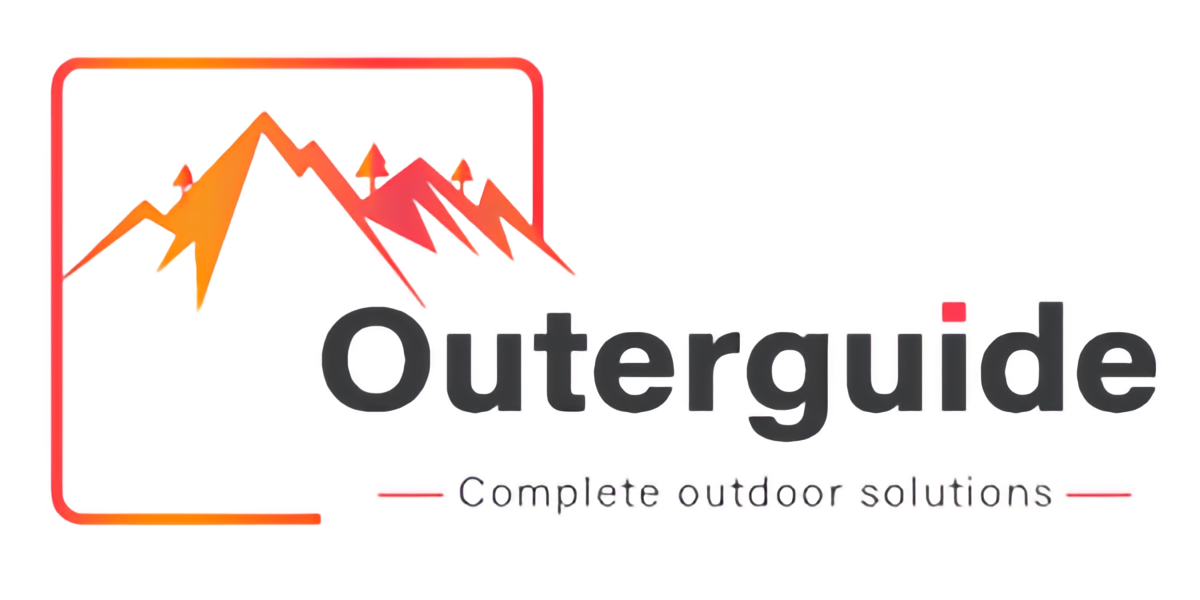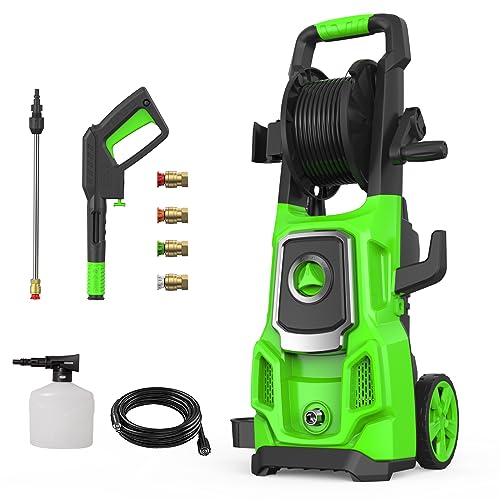It’s a new year, and you know what that means: it’s time to start fresh. Pressure washing is a great way to make sure your house is spotless for the first few days of the New Year. How do you go about pressure washing, exactly?
You can get pressure washers from any hardware or home improvement store, but not all pressure washers are created equal.
This blog post will discuss what to look for when purchasing a pressure washer and give you ten brilliant uses of these versatile tools!
Most Common Pressure Washer Uses
A 2014 Report says that the pressure washing industry, including residential and commercial sectors, has 182,073 employees in the United States and $9 billion in annual sales. The top ten most frequent business activities discovered by the research according to the study are as follows:
- Rugs
- Decks
- Pool cleaning
- Garage Floor, Parking lot, and driveway washing
- Concrete or Tile Patios
- Grills
- Fences
- Cars and Trucks
- Home Exteriors Like Vinyl or Brick
- Miscellaneous gear like lawnmowers, dirt bikes, boats, or trailers
Now let’s discuss these pressure washing uses.
Rugs
On rugs, pressure washers are helpful. Spray some detergent on your rug and rub it in gently with water before wiping it. Clean with dry paper towels or a microfiber cloth to get the same results as any fabric.
Decks
Pressure washers are also an excellent option for getting your deck squeaky clean. If you’ve ever scrubbed the dirt and grime off of a deck or patio by hand, you know how laborious the process can be.
Using a power washer to clean your deck is far more efficient and can be accomplished in a fraction of the time.
Pool Cleaning
Nothing beats the power washer when it comes to cleaning out the gunk that builds up in pools. The power washer’s strong spray can get rid of your pool’s filth, which can make your pool look clean and fresh.
Garage Floor, Parking lot, and driveway washing
Pressure washers are powerful enough to eliminate even the toughest stains, including oil and grease. It’s not difficult to have your garage floor looking brand new again!
Concrete or tile patios
Pressure washers are also great for washing concrete. Because they can get rid of the grime that builds up over time, making your patio look less than desirable.
Grills
If you have a dirty grill that won’t come clean in the sink, you can use a pressure washer to blast away all of that grime and stuck-on food.
Fences
Pressure washers can also be used to clean your fence. They’re a great way of removing the dirt and grime that accumulates on fencing, especially if you don’t have the time to scrub them down.
Cars and trucks
If you want to wash your car yourself, pressure washers are the way to go. They can help get rid of dirt and grime on cars without damaging the surface and are powerful enough to get through tough mud.
Home exteriors like vinyl or brick
Power washers can be used to clean vinyl siding or brick as well. Suppose you have a power washer at home. In that case, it’s easy to clean your exterior windows, patio furniture, and gutters to get a fresh start.
Miscellaneous gear like lawn mowers or dirt bikes
This is just one more great reason to own a pressure washer. You can use it on almost anything, and this includes your lawn mower or dirt bike.
How are pressure washers used in industry?
There are countless ways to use pressure washers in industry, but few are the most common.
Cleaning equipment: They’re great for rinsing off dirty equipment before putting it away.
Cleaning sidewalks and driveways: This is one of the easiest and most effective ways to make your property look great.
Cleaning parking lots: This is a big job that requires the power of multiple pressure washers, but your results will be worth it.
Cleaning buildings: You can send pressurized water through windows or a power washer to remove graffiti.
Cleaning cars: I’ve never used a pressure washer to clean my car, but you can do it.
Cleaning boats: This is a great way to get rid of salt deposits and prepare your boat for storage.
A Step-by-Step Guide to Pressure Washing Techniques
Now, let’s talk about how to employ one of these bad boys! To pressure wash your deck or driveway, start by putting on some safety gear. That includes a pair of rubber gloves, goggles, and earplugs to protect yourself from the spray.
Step One: Fill your pressure washer with water and connect it to a nearby spigot.
Step Two: Turn on the water, ensuring you have enough pressure for the job.
Step Three: Point your washer at what you’re cleaning and adjust the direction of the nozzle as needed.
Step Four: Work your way around the object you want to clean and keep checking it as you go so that you don’t miss any spots.
Step Five: When you’re done, turn off the water and let everything dry before using it again or storing it away.
Step Six: If you’re using soap, make sure to wash it off entirely before turning your pressure washer back on.
Step Seven: Disconnect your pressure washer and store it in a cool, dry place.
Common Pressure Washing Mistakes to avoid
- Using the wrong nozzle for your task.
- For more challenging jobs like removing graffiti, you want to make sure you’re using the most powerful nozzle you have.
- Using too much soap or not letting it rinse off thoroughly.
- For most tasks, you don’t need to use any detergent at all. If you want to use soap, always follow the manufacturer’s instructions.
- Using a pressure washer on a dirty surface or failing to test for power before use.
- Ensure your surface is as clean as possible and that you’re not using a power washer on a weak or damaged hose.
- It would help not wash animals or pets in a pressure washer. It would help if you never used a pressure washer to clean animals or other living things, as water could penetrate their skin.
- When you use the incorrect detergent with your pressure washer, it can make a mess. Water-based detergents are designed to work with pressure washers. Using other types of detergents could potentially cause damage to the engine or pump.
- Failing to maintain your equipment after use properly. After using it, always clean your unit and check all hoses, connections, and other parts for damage.
- Using a pressure washer on a wet object. It would help if you never used pressure washers on things that are already wet. They can cause water to penetrate the surface and potentially damage it.
- Using a pressure washer on windows or other reflecting surfaces to remove paint that has been sprayed, brushed, or rolled onto them. You don’t want to damage your windows! Do this job by hand instead.
- Using a pressure washer to clean surfaces over 30 feet high is the maximum safe height for most pressure washers.
Pressure Washing Tips from Experts
- Use the correct soap and water mixture. Never use a pressure washer to clean without any soap or detergent at all. You want to make sure that the soap gets down into the cracks and crevices where it’s needed.
- Use a surface cleaner attachment for tough jobs like removing graffiti.
- Before you begin pressuring cleaning, learn as much as possible about your surface. You want to make sure that you are using the correct water temperature, soap type, detergent, and nozzle for the job.
- Please don’t force the pressure washer to do a job that it can’t handle. You don’t want to take any chances by using a tool that won’t clean as effectively as you expected.
- When not in use, store your pressure washer indoors. Never leave your pressure washer running unattended. Make sure you’re nearby in case there are any issues.
- Turn off the pressure washer and disconnect from the hose before cleaning, especially if you’re using a surface cleaner attachment.
- Wash surfaces from a clean starting point to avoid staining. Do it in stages if you need to clean a surface from the middle outwards.
- Before beginning your project, try running your power washer on an inconspicuous area to ensure it works properly. It will let you know how much water pressure or soap is needed for the job, so you don’t damage the surface you’re cleaning.
- Don’t use a pressure washer on surfaces that are hot to touch, like cars or pavement.
What should I look for when shopping for a pressure washer?
PSI: Pressure washers typically have a number in their name, indicating the pressure level they can produce. The higher this number, the better the cleaning power.
GPM: This indicates the volume of water your pressure washer is putting out. The higher this number, the more powerful it will be.
Fuel Source: Gas pressure washers are the most powerful, producing more noise and requiring regular maintenance. Electric models are less powerful but are quieter and easier to maintain.
Pressure washer nozzle tips: Four types of nozzles can be used with a pressure washer, each with its unique cleaning power.
Turbo tip: This is the most powerful nozzle and provides an extra-high PSI for tough jobs like removing graffiti.
Narrow fan tip: This is the most common nozzle and offers a balance between pressure and coverage size. It’s great for washing cars.
Wide fan tip: This is the least powerful nozzle but provides a wide spray perfect for covering large areas.
Adjustable fan tip: This nozzle features a dial that you use to adjust the width of your spray from comprehensive to narrow. It’s perfect for small jobs.
Pressure washer pressure tips: There are three types of spray patterns that you can use with a pressure washer.
Cone spray: This provides extra pressure at the center of your cleaning area. It’s great for getting into hard-to-reach spots.
Turbo spray is the most common pressure washer pattern and offers extra high pressure for stricter jobs like removing graffiti.
Wide fan spray provides a softer pressure and is perfect for washing cars or other surfaces that you don’t want to damage.
If you’re unsure which pressure washer is suitable for you; there are a few things to consider:
- Decide on the fuel source.
- Check the PSI and GPM of your desired pressure washer.
- Consider what you’ll be using most often and choose a nozzle that offers the desired spray pattern.
Best Recommended Pressure Washer for Home Use
Last update on 2024-04-27 / Affiliate links / Images from Amazon Product Advertising API
Best Recommended Pressure Washer for Commercial Use
Last update on 2024-04-26 / Affiliate links / Images from Amazon Product Advertising API
Wrap Up
This blog post has provided you with a thorough understanding of pressure washer uses and what to look for when buying one for your cleaning tasks.
I hope you found this blog post informative and exciting!
Shop Related Products


Last update on 2024-04-26 / Affiliate links / Images from Amazon Product Advertising API
Last update on 2024-04-27 / Affiliate links / Images from Amazon Product Advertising API










